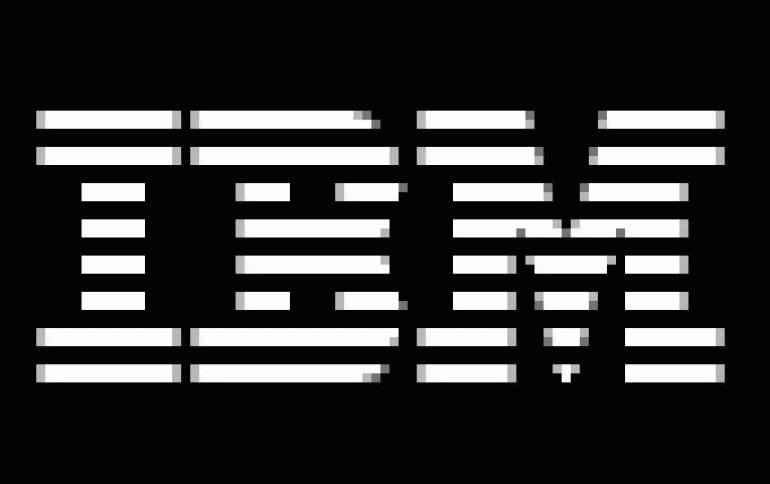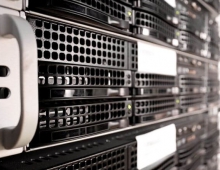
IBM sells PC business to Lenovo
IBM has confirmed that its has sold its personal computer businesss to Chinese group Lenovo, in a complex deal valued at $1.75billion and which, importantly, gives the company rights to use the IBM Think brand.
So IBM is looking for a way out of the PC business. Big Blue's personal computer division is going to be sold. It's hard to believe after all these years, even though the PC business at IBM has never really recovered from the kidney-punch Microsoft delivered to it by withholding licensing for Windows 95 until 15 minutes prior to launch. The malignant monopoly was just as open to the possibility of competition in those days as it is today, so IBM had to be punished for daring to push OS/2. On the other hand, someone might say that this movement strengthens the US factor in the huge Chinese market.
The deal immediately moves Lenovo, formerly the Legend Group, from being the eighth-largest PC maker globally to the third spot, behind only Dell and Hewlett-Packard. It also represents the largest ever foreign acquisition by a Chinese company.
Under the terms of the sale, Lenovo will pay $600 million in cash and $650 million in common stock, and assume $500 million in IBM debt. It gains the right to produce IBM-branded PCs under a five-year licencing agreement.
IBM will take an 18.9 percent stake in Lenovo, and BigBlue will be the Lenovo's "preferred supplier" of support services and customer financing.
The deal is expected to be finalized in the second quarter of 2005.
IBM's chief executive Sam Palmisano cited economies of scale as one reason behind the move, saying the consumer PC business is increasingly resembling the consumer electronics sector. "This further strengthens IBM's focus on the enterprise [sector]", he said.
The sale continues IBM's strategy of selling fewer commodity products towards becoming a supplier of services, software and high end computers. Even though the company played a crucial role in making PCs a global business, analysts suggested IBM has not made big profits from personal computers, and has sometimes lost money, even tough in its last financial year, it was an $11 billion business.
The enlarged Lenovo will have annual revenues of more than $12billion and will move its headquarters from Beijing to New York. Stephen Ward, currently head of IBM's PC division, will become chief executive, while Yuanqing Yang, Lenovo's president and CEO, becomes chairman.
About 10,000 IBM employees will join Lenovo following the completion of the deal, of whom 40 per cent are based in China. Roughly 2,500 US employees are affected.
The companies said no job losses are involved, and that the new Lenovo would employ about 19 000 people.
IBM's competitors were quick to predict that the deal would fail. "When was the last time you saw a successful merger or acquisition in the computer industry? It hasn't happened in a long, long time," said Michael Dell, founder and chairman of the largest PC maker, at a conference in San Francisco on Wednesday.
Duane Zitzner, head of HP's PC division, predicted that the deal would "create a lot of turmoil within IBM accounts" from which HP would benefit.
IBM outsourced its PC manufacturing operations in Europe and North America to contract manufacturer Sanmina-SCI. Its PC manufacturing in China now becomes part of Lenovo.
The deal immediately moves Lenovo, formerly the Legend Group, from being the eighth-largest PC maker globally to the third spot, behind only Dell and Hewlett-Packard. It also represents the largest ever foreign acquisition by a Chinese company.
Under the terms of the sale, Lenovo will pay $600 million in cash and $650 million in common stock, and assume $500 million in IBM debt. It gains the right to produce IBM-branded PCs under a five-year licencing agreement.
IBM will take an 18.9 percent stake in Lenovo, and BigBlue will be the Lenovo's "preferred supplier" of support services and customer financing.
The deal is expected to be finalized in the second quarter of 2005.
IBM's chief executive Sam Palmisano cited economies of scale as one reason behind the move, saying the consumer PC business is increasingly resembling the consumer electronics sector. "This further strengthens IBM's focus on the enterprise [sector]", he said.
The sale continues IBM's strategy of selling fewer commodity products towards becoming a supplier of services, software and high end computers. Even though the company played a crucial role in making PCs a global business, analysts suggested IBM has not made big profits from personal computers, and has sometimes lost money, even tough in its last financial year, it was an $11 billion business.
The enlarged Lenovo will have annual revenues of more than $12billion and will move its headquarters from Beijing to New York. Stephen Ward, currently head of IBM's PC division, will become chief executive, while Yuanqing Yang, Lenovo's president and CEO, becomes chairman.
About 10,000 IBM employees will join Lenovo following the completion of the deal, of whom 40 per cent are based in China. Roughly 2,500 US employees are affected.
The companies said no job losses are involved, and that the new Lenovo would employ about 19 000 people.
IBM's competitors were quick to predict that the deal would fail. "When was the last time you saw a successful merger or acquisition in the computer industry? It hasn't happened in a long, long time," said Michael Dell, founder and chairman of the largest PC maker, at a conference in San Francisco on Wednesday.
Duane Zitzner, head of HP's PC division, predicted that the deal would "create a lot of turmoil within IBM accounts" from which HP would benefit.
IBM outsourced its PC manufacturing operations in Europe and North America to contract manufacturer Sanmina-SCI. Its PC manufacturing in China now becomes part of Lenovo.





















